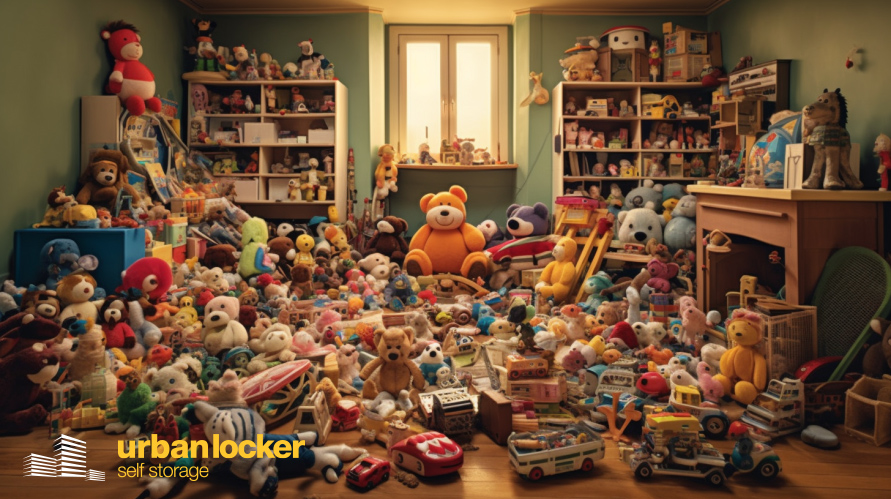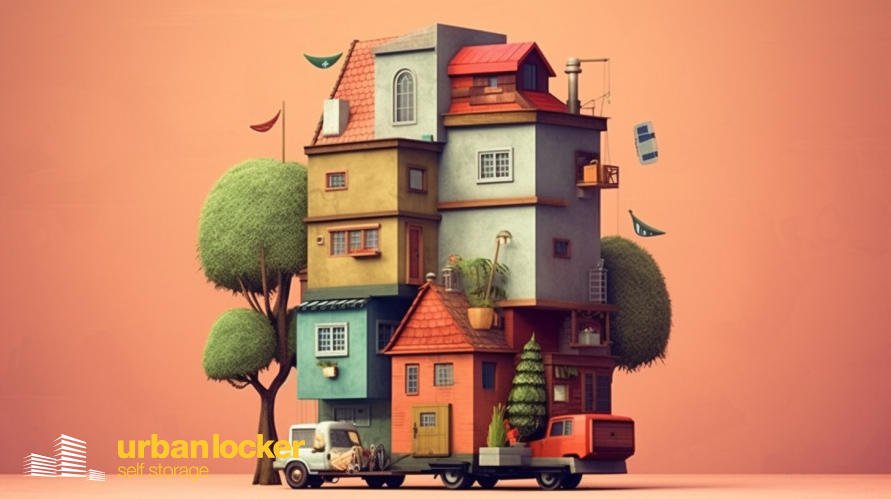For parents, keeping a home clutter-free while accommodating children’s toys can be a challenging balancing act.
Toys are essential for children’s development and entertainment, but they can quickly overrun your living space. This article offers practical tips on managing your children’s toys to maintain a tidy and harmonious home.
Only Keep Toys They Regularly Play With
Regularly assess your child’s toy collection and keep only those they actively play with. Children often lose interest in certain toys over time, and these unplayed toys take up unnecessary space.
Periodically ask your child which toys they love and play with the most. This not only reduces clutter but also helps in understanding their current interests and developmental needs. It can also give you an indication of what toys to purchase next, so you aren’t buying toys that they won’t play with and will end up cluttering your home.
Limit Multiples of Similar Toys
Having multiple toys that serve the same purpose can lead to unnecessary clutter.
Limit the number of similar toys, such as multiple sets of building blocks or redundant puzzle games. This encourages children to fully utilize and appreciate what they have and makes organizing easier. Having too many of the same toys can also be boring too, by keeping the number of same toys down you cut out the clutter and keep playtime interesting.
Strategically Store and Group Toys
Find suitable, accessible places in your home to store toys, keeping the most frequently used ones together and within easy reach for your children.
Use clear, open bins for toys that are used daily, and store them on low shelves or in designated play areas. This strategy not only helps in keeping the toys organized but also makes clean-up easier for children. It also stops your children from pulling out all of their toys when they are looking for a specific one.
Make the Most of Small Lidless Bins
Small lidless bins are ideal for storing smaller toys or pieces of a set. These bins can be placed on shelves, under beds, or in closets, maximizing space while keeping toys visible and accessible. They are especially useful for organizing items like action figures, doll accessories, or art supplies.
Group Like Toys Together
Organizing toys by category helps prevent every toy from being pulled out at once. Group like toys together, such as all vehicles in one bin and all stuffed animals in another. This method makes it easier for children to find what they’re looking for and encourages them to play with one type of toy at a time.
Use a Storage Container for Infrequently Used Items
For toys that are not used regularly but you’re not ready to part with (like seasonal items, keepsakes, or toys they might grow into), use a larger storage container. Store these containers in a garage, attic, or closet. This keeps less frequently used toys out of the way but still accessible when needed.
Additional Tips for a Clutter-Free Home
Implement a toy rotation system where you swap out a few toys every few weeks. This keeps the number of toys in the living area manageable and keeps your child interested in their toys.
Teach children to put their toys away after playing. Make it a fun and routine part of playtime.
Regularly donate toys that are no longer used but still in good condition. This teaches children about generosity and the value of decluttering.
Set a limit on the number of toys that come into your home. Be mindful of purchases and encourage family and friends to give non-toy gifts like books or experiences.
Why cut down on the clutter?
Maintaining a clutter-free home is crucial for a variety of reasons, impacting not just the space itself but also the well-being of those living in it.
A clutter-free environment reduces stress and anxiety, as a disorganized space can be overwhelming and make relaxation difficult. It also improves focus and productivity, as clutter can be a major distraction, hindering concentration and motivation.
Safety is another important aspect, as clutter can pose risks of trips and falls, particularly for children, the elderly, or those with mobility issues. In terms of cleanliness, a cluttered home can accumulate dust and dirt, affecting hygiene and air quality. A decluttered space, on the other hand, is easier to clean and maintain.
Additionally, a clutter-free home saves time and reduces frustration by making it easier to find things without the need to search through piles of items. It also enhances the aesthetics and comfort of the living space, allowing for more intentional décor and a pleasing environment.
From a mental health perspective, clutter can negatively impact well-being, contributing to feelings of overwhelm. A decluttered space promotes a sense of control and accomplishment. It also makes the home more welcoming and comfortable for guests, improving social interactions.
Lastly, decluttering can reflect personal growth and change, as letting go of past items can make room for new experiences and opportunities. In essence, a clutter-free home contributes to a serene, efficient, and healthy living environment, supporting the physical and mental well-being of its inhabitants.
If you need help in decluttering your home, consider hiring a storage unit. At Urban Locker, we have storage locations on Old Street and Islington.

